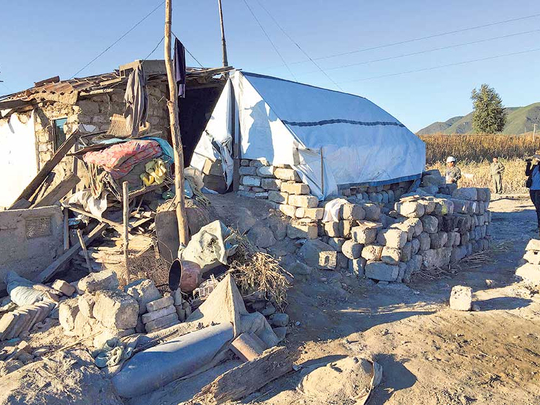
Seoul: At least 600,000 people in North Korea have been affected by heavy flooding that damaged or destroyed 30,000 homes, the Red Cross said, calling for urgent humanitarian aid ahead of the winter.
“The disaster hit, in many ways, at probably the worst time,” said Chris Staines, head of the International Federation of Red Cross and Red Crescent Societies (IFRC) delegation in North Korea.
The IFRC has been working with North Korea’s Red Cross Society to deliver aid to northeastern communities that suffered the worst of the flooding caused by heavy rains in late August.
Staines said “urgent action” was needed before the first snowfall expected in late October when temperatures fall below freezing, and can reach minus 30 degrees Celsius (minus 22 Fahrenheit) in midwinter.
“This is seriously harsh conditions and that’s why we need much more permanent solutions in terms of shelter, in terms of the health services and the access to food, and sorting out issues around safe water,” he said.
The IFRC has launched a 15.2 million Swiss Francs (Dh57.3 million or $15.6 million) emergency appeal to reach more than 300,000 people with humanitarian assistance over the next 12 months.
The IFRC released video footage it said was taken last week in North Hamgyong province that showed damaged buildings and displaced people living in rows of temporary shelters.
The UN Office for the Coordination of Humanitarian Affairs said on Sept. 12 that, according to figures based on government data, 133 people had been killed and 395 were missing.
News of the disaster has come as North Korea appears even more isolated from its neighbours and the wider world after its fifth nuclear test last month.
Widespread deforestation for fuel and farming has made the impoverished country prone to natural disasters, especially floods.











